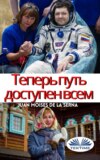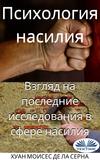Kitabı oxu: «Fatima: The Final Secret»
Fatima:
The
Final
Secret
Juan Moisés de la Serna
Translated by Daniel J. Ruddy
Publisher: Tektime
2019
“Fatima: The Final Secret”
Written by Juan Moisés de la Serna
Translated by Daniel J. Ruddy
1st edition: November 2019
© Juan Moisés de la Serna, 2019
© Tektime Publications, 2019
All rights reserved
Distributed by Tektime
https://www.traduzionelibri.it
The reproduction of this book, either in full or in part, is prohibited, as is the incorporation thereof into any computer system and its transmission in any format or by any means, whether electronic, mechanical, by photocopy, by recording or any other means, without the prior written consent of the publisher. The infringement of the aforementioned rights may constitute an offense against intellectual property (Article 270 et seq. of the Criminal Code).
Please contact CEDRO (the Spanish Center for Reprographic Rights) if you need to photocopy or scan any portion of this work. You can reach CEDRO through the website: www.conlicencia.com or by phone at (+34) 91 702 19 70 / (+34) 93 272 04 47.
Foreword
The sun had not even risen when I heard the alarm, half-asleep I stretched out my arm and with an accurate whack, I turned it off and the ringing stopped. I decided to go back to sleep after turning around in bed, remembering that we were on vacation.
Why would the alarm have sounded? Surely it was a mistake. Wrapping myself up to the head, I let myself drift back into that blissful early morning doze.
Dedicated to my parents
Index
CHAPTER 1.
CHAPTER 2.
CHAPTER 3.
CHAPTER 4.
CHAPTER 5.
CHAPTER 6.
CHAPTER 7.
CHAPTER 8.
CHAPTER 9.
CHAPTER 10.
CHAPTER 11.
CHAPTER 12.
CHAPTER 13.
CHAPTER 14.
CHAPTER 15.
CHAPTER 16.
CHAPTER 17.
CHAPTER 18.
CHAPTER 19.
CHAPTER 20.
END OF THE BOOK
CHAPTER 1.
The sun had not even risen when I heard the alarm, half-asleep I stretched out my arm and with an accurate whack, I turned it off and the ringing stopped. I decided to go back to sleep after turning around in bed, remembering that we were on vacation.
Why would the alarm have sounded? Surely it was a mistake. Wrapping myself up to the head, I let myself drift back into that blissful early morning doze.
Vacation, a magic word, I did not have to go to class. Everything had gone by so fast this year, in a way that no other year ever had. Before I knew it, the academic year was over. It seemed like it was just yesterday that I was getting up, when I nervously went in to see which tutors would teach me this year and eager to meet my coursemates, some of whom I hadn’t seen all summer, because they had left. That being said, I had also spent a few days with my family in Sanxenxo, where my grandparents had taken it upon themselves for years to rent a cottage for everyone.
This summer, Dad said that our days at the beach had to be cut short, a colleague from the office had come down with something and he had to cover for him, and of course he was not planning to be alone at home, who would make him dinner? And who would prepare his clothes?
Everyone at the beach understood. Who wanted to be at the beach anyway? We still remembered that last year we could not enjoy any more than two or three days, the rest were rainy and the weather was terrible. It was so bad that we could hardly go out onto the street, so no one protested at the prospect for this year, because we would have a better time at home anyway. At least if the weather was bad, or a friend came to visit or we went to their house, it meant that the time was not as boring as it had been there.
The twins, being of the same age, always entertained themselves, they never got bored, but I didn’t have any friends around here, even though I think it’s been five years that we’ve been coming here to the same beach, “La Praia de Silgar,” in Sanxenxo, in the province of Pontevedra.
“A mellor Praia de Galicia,” or “The best beach in Galicia,” according to my grandparents in their thick Galician tongue.
There were always lots of girls, so my two sisters had friends to have fun with, but there were never any boys my age, which is why I was always the one who stayed with Mom, Dad and my grandparents, bored, never knowing what to do.
“Let’s have a little game of chess,” my father would say when he saw me there.
It was a game that he liked a great deal, and I think he had taught me since I was a child so that he could have someone to play with. Of course, to play with him, I had one condition, “That he had to let me win at least once,” which he almost always did in the first game.
I would be encouraged, and put all my effort into seeing if I could do it again, and we would play a few more rounds, but I would not repeat my luck again, and despite my efforts I would lose one game after another.
“I’m not playing anymore, it’s very boring to always lose, you cheat me,” I would say angrily.
“Manu, you already know how to play well. If you want to strive and beat me, you don’t have to move so fast, you have to stop to think about the next step, and consider what consequences the move you’re about to make might have,” he told me very seriously.
“Come on, what are you saying? Dad, it’s just a game, why do you want me to think so much about it?” I answered, already annoyed.
I would get up at that point and it would be over. He already knew that there was no way I would continue and he would leave me until the next time he would see me wander around bored
“Right! Shall we play another little game?” he would say trying to keep me somewhat entertained.
Grandma and Mom would go for a walk on the beach, with their feet in the water, whenever the waves let them. Grandma said that it was very good for the circulation, that she noticed how her varicose veins would stop giving her grief when she did it. I had no idea how they could handle that cold water.
Grandpa was the brave one in the family, because there were days when he was the only one who dared to get in there. After taking a little dip, as he called it, he would take a few quick runs up and down to dry himself off when he got out, and then he would sit on his blanket, that old blanket that Grandma had given him just for the beach, which he brought, “So as not to be soiled with sand,” as he put it. He spread his blanket across the sand under the shadow of the canopy over his head, which had managed to create some decent shade, and which sometimes also sheltered us from a good downpour, those which fall in the summer without any warning.
It consisted of four poles of about five feet in length, and a large square tarpaulin with some ropes. When we got there, we all helped him assemble it. We used the “Canopy,” which was his name for it, to eat peacefully in the shade, so as not to get sunburned. I didn’t really understand why we were going to the beach to get some sun and then having to get underneath the canopy, but I admit that it was great for the twins, and for the little one, since they could quietly have their nap under there.
Grandpa would read his newspaper, as he did every day. He said that, although he was on vacation, he had to be informed of the news that was making its way around the world. When he saw me there bored, not knowing what to do, nor with whom to spend time, sitting alone trying to entertain myself playing with the sand, he would watch me as he used to do, lowering his head a little and peering at me over his glasses. Looking serious he called to me.
“Manu, can you come here for a moment? I need you, can you help me?”
I went to see what he wanted and he took me by the arm so that I would bend down and he would make me sit next to him on the blanket. He would tell me softly so that no one would hear him:
“Come on Manu, let’s see if you can beat your father this time, and you can become the champion.”
Looking at that cold water, which I did not want to get into, I reluctantly got up, shook off the sand that had stuck to my legs and lazily went over to my father’s side. I spoke to him so quietly that he could barely hear me:
“Well, what do you think about playing a little? But you know, you have to let me win.”
“Whaaat? I can’t hear you, speak up, what did you say?” said my father.
“How about we play? If you’d like,” I repeated louder.
“Son, I’m going to see if you ever let the boy win,” Grandpa told my father when he heard me.
I was glad that Grandpa supported me:
“Did you hear that Dad? Let’s see if you listen to your father. What can I say, just as you tell me that I have to obey you, because you’re my father, you also have to do it, because you’re his son,” and without further ado we started to play.
<<<<< >>>>>
I jumped out of bed, how could I have forgotten? I ran down the hallway, thank goodness there was no one in the bathroom. I got into the bathtub, but since I was half-asleep, I almost fell. After a quick shower, now a little more alert, I returned to my bedroom thinking that I didn’t have time for breakfast. I would be late, and as it was the first day, it would not go down well if I was the last to show up, what would the others think?
I saw the clothes placed there on the chair and I put them on in a rush. Thank goodness I had gotten them ready last night before going to bed, thinking that it would be the most convenient way to prepare. I’d never been in such a situation before and I was sure that if I hadn’t prepared, I would not have found anything appropriate to wear with all the scrambling around this morning and I would have screwed it up.
<<<<< >>>>>
Sitting quietly, waiting for that hot cup of coffee that I had left on the table to cool down, the memories of that distant day came to mind in droves, as if they wanted to come out all at once. How long ago all that was, and how many things had happened since then.
Looking absentmindedly at the coffee again, I let myself be carried away by those thoughts that flowed into my mind, the time that had passed since those days, when the only thing I thought about, like all my peers, was the weekend and how much fun it would be, without any other worries. It was good to study yes, but that was not very important at that time, because as a kid, studies are only part of the games.
Finally, I went to high school, and things changed. I had to take everything more seriously.
“Manu this is different, you can’t treat it like a game, you have to study hard to pass. Here they don’t give grades away, and if you have to re-take any subject in September, you’ll spend all summer studying, punished without going out,” my father told me very seriously that day.
I knew my father, and I knew that when he said something, he meant it, so I made it my purpose to never miss a class and to behave myself. With that, I thought I would be fighting half the battle and with a little more effort, I would have the school year completed successfully. That was preferable to killing myself studying.
Of course, such actions performed as a young man so as not to lift a finger are so thoughtless. How ignorant I was that the better prepared you are, the easier it will be to move forward in life.
“You can’t get lost time back.” I never really knew what that meant, but my grandfather was convinced that sayings contained truths and he used them all the time.
<<<<< >>>>>
I took the cup of coffee; it was cool enough not to burn me. I had to get on with the task that had been imposed upon me, it was essential that I pick up the paper trail. Slowly, I took a sip while looking at the table, at that note that I had received in such a strange way. I mean I was used to strange things, but I had never had an envelope slid under my door before, who could it have been?
I had to verify the information, I couldn’t trust anything or anyone. From experience, I had already figured out that someone, I’m not sure who, was determined to get me to drop all of this and let it go, and what was happening in reality was that I was becoming increasingly interested in it. I had to get to the bottom of the matter and discover the truth.
Walking briskly, I went over to the library, it had just opened. I had watched from the place where I was sitting drinking my coffee, indeed I had chosen that location for that reason. From there, I had a perfect view of the door to the place where I could find the long-awaited answer. Why with as many libraries as there might be, would they have chosen this one?
As I am very curious, I was sure that at some point I would have the answer to that question, but right now it was not essential. Finding the document was the important thing, but now I was realizing:
How would the anonymous author of the sealed letter know that I was looking for that document? How strange! I didn’t think I had mentioned it to anyone, all this seemed too coincidental.
I left the heavy door of the library behind me, but not before admiring it first. What a piece of work it was! What an artist it was who had constructed it! Even with the time that must have passed since then, everyone could admire the beautiful figures that were created by the hands of the craftsman. People might not know who he was, but his work was visible, within the reach of all eyes. Would he have thought at the time he was creating it about the amount of people who would admire it and about the amount of time that his work would endure? Would he have thought about how many things that enormous door would lock behind it? The door of a library, where so much wisdom is stored. How important it is, and we pass through it, almost without realizing it.
I arrived at the counter, where a friendly lady asked me what I wanted to see. Still contemplating the craftsman of that amazing door, I didn’t notice her when she said, “Good morning,” nor did I hear the question that she had asked me when she saw me arrive.
“What a piece of work!” I said absent-mindedly, without realizing that someone was listening to me.
“What did you say? What do you mean?” she said with a look of surprise.
“Sorry, I was thinking about something else. May I consult a book?” I asked, returning to the matter that had brought me there.
“That’s what I’m here for, to provide the desired information to those who need it,” she responded with a smile. “If you tell me what it’s about and if we have it, I can tell you where it is.”
“Well, the thing is, I don’t know. I’m looking for something, where could I find it?” I said a little quieter, as if I were ashamed, because she was listening to me when I said it, and she saw how awkwardly I was expressing myself, the nerves that I felt wouldn’t even let me speak properly.
“If you can give me a hint, I’m sure I can help you,” she said smiling.
“The Secrets of Fatima,” I said promptly, looking at the floor without daring to look at her.
“It’s on my nightstand,” she answered immediately without stopping to think.
I was amazed by her response, I looked her up and down, trying to analyze her. “What a way to get my attention!” I thought.
No, she didn’t seem like one of those girls who like to be noticed, she had the appearance of a serious person, at least from the way she dressed. She wore a gray pleated skirt and a sweater that was also gray, but of a darker shade, with her hair pulled back in a bun. She wore no makeup, which gave the impression that she was a formal and educated person. I didn’t understand why she had given me that answer, which I considered so strange and inappropriate.
I opened my mouth to tell her that I was serious, but she did not let me say another word as she continued.
“It’s one of my favorite books and since I first got it, I’ve read it so many times that I know it by heart, but nobody has ever asked for it here in the library, well because I know that anyone who is interested in the subject, goes and buys it in a bookstore,” she was saying quite seriously. I was still surprised by her response, and I was still staring at her.
“But, the secrets? Secrets? Not the ones that are in the public domain,” I said softly.
“Wait, there are more secrets? Well that’s got my attention,” she said in a curious tone, leaning her head in closer to me, in order to speak more quietly.
“That’s what I’m trying to find out,” I answered also quietly, not wanting anyone to hear me.
“Come, I’ll show you everything we have on the subject, to see if there’s anything that will help you in your task,” she answered suddenly, her voice conveying her great enthusiasm.
Leaving her work station and walking at a brisk pace, so much so that I had trouble following her, we passed through the corridors of the library, until we reached one of the most distant and lonely corridors. It was clear that it was seldom visited. She stopped in her tracks, and turning to me she said:
“Here is all the material that we have about Fatima, but if you like, when we close the library I can show you a bookstore that I know well, where you might also find something on the subject that may interest you.” She was telling me this while she gestured toward the bookshelves with her hand, where I saw several books, which I supposed would provide me with information about what interested me.
I was surprised by the way she was talking to me, I wasn’t sure if I had heard her properly that she wanted to accompany me, and puzzled, I asked her:
“Why don’t you give me the address and I’ll go myself after looking at what you have here?”
“As I said, it’s a topic that has interested me for a long time and I know where the materials are, on what bookshelf, and if you were to go alone, I’m sure you wouldn’t find it. Well, if you don’t mind me coming with you, of course,” she added.
As she seemed very judicious to me, we agreed that I would see everything that was around here, and when it was time to go, we would meet by the exit.
She agreed and left with a spring in her step, back to her work station, and to open that door, which she had closed with a firm push in order to come with me to show me where the material was that I might find interesting.
<<<<< >>>>>
That day, I had put on some pants, the oldest I had, and my green plaid shirt, the one I hadn’t worn for a long time and which was so worn that my mother would not let me go out in it. With the sleeves rolled up, I went to meet my companions, well, they would be my companions from today, because I had been assigned to work with them when I told them I would like to help with something.
The academic year had already finished and we were on vacation and since I had nothing fun lined up this summer, I wanted to do something different.
One day I’d heard a group of students, in the college quadrangle, who had commented on what they had done last summer, and as it seemed strange to me, I stopped to find out more. I thought I had heard that they had worked as bricklayers, it could not be true, surely I was wrong, so I asked them about it.
“Yes, what’s so strange? We’ve been fixing the house of some folk who needed someone to lend a hand,” answered one of the girls who was in that group.
She told me in a normal voice, as if the others also knew what she was talking about, but it seemed very strange to me, I thought she was making fun of me.
“Wait, what are you telling me?” I interrupted, “You? A bricklayer? What about your nails?”
“Well it was during the summer, I didn’t have to come to class, so I didn’t need to have them, I didn’t need them long or painted, so I cut them. We do the work with care, we’re professionals after all,” she replied with a chuckle.
“Professionals of what?” I asked her intrigued, because I saw that the others were watching, and they didn’t laugh at what she was telling me.
“Hey, if you came here to mock us, you can get lost, we take this seriously,” said the guy next to her, and they all stared at me.
“But yeah, tell me some more, you have to admit that what I’m hearing is pretty unusual,” I told them so they could inform me about what I’d heard when I was passing them by.
“Look, if you want to know more, come this afternoon, we have to get going now or we’ll be late for class.”
And with that, the group disbanded, but before they disappeared, I shouted:
“What time? Where can I find you? I really do want to know more.”
“Here at five, be on time!” one of them said as he turned away.
<<<<< >>>>>
What incredible memories! One day I have to make a compilation of everything, because although I’m not very old and I have an excellent memory, who knows when it will start to fail me, or what things might happen to me. Although I don’t believe that my life interests anyone, even if out of curiosity, one day I’m going to write down everything that has happened to me. I’ll try to do it accurately, without so many flights of fancy, just as I’m remembering it now. The unfortunate thing is that I’m always so busy that I have no idea when I’ll be able to actually do it, but yes, I am determined and I will do it at some point.
Browsing through the material that I had taken down to the table, time flew past and I was startled when I noticed a tap on my shoulder. It was her, the librarian.
“It’s closing time. If you want, I’ll show you the place we were talking about earlier,” she said with a soft voice and a smile on her face.
“What was that?” I asked absently.
I didn’t know what she was talking about, time had passed, I was reading so much information that reality, the place, the circumstances, had passed into the background, and at that moment I had forgotten what we had talked about or what she was referring to.
“Leave something for tomorrow, it’s not going anywhere,” she said as she turned around and started off down the long corridor.
Closing the book that I had in my hands, and taking the others from the table, I returned them to their places on the bookshelf and followed her. Seeing that she was moving faster than me, I had to pick up the pace. What a way to walk, I thought. Of course she will have to pass through these corridors many times a day and that will have given her that agility.
<<<<< >>>>>
It was an important day. I was so nervous! I don’t think I’d ever felt so nervous. The others told me not to worry, that everything would be very simple, but I found that strange to say the least. How would it be done? What would I have to do? What task would they assign to me? I hadn’t considered how difficult it might be until now, when I was going to meet those who would be my companions during this stage of my life, which was now so novel and at the same time so strange: a summer spent working.
I was a university student who was used to having everything done for me. At home, Mom had always taken care to make sure that everything was clean and ready. I had never even considered that one day I would have to do it myself, so I had never bothered to learn, not even how to wash my socks, much less how to sew them if they ever developed any holes. That was normal in my house, and I think the same thing should happen in all homes. The boys didn’t help with anything, well, sometimes to set the table, if my sister Carmen was busy.
But on that day, when I left home to go to the Student Residences, I didn’t think about all the work that I now had to do for myself. I had to make an effort to be clean, since my clothes piled up in the laundry hamper, without me knowing how to put on the washing machine, even though they wanted to show me at home.
My older sister tried hard to tell me over and over that everything was simple, you just had to hit that button. Yes, of course, but what about the detergent? When should you use it? And how much? The washing machine was women’s work, that much was clear, only they understood it.
There are some things that are very difficult to understand compared to how simple they were at home. Going into the closet, everything was in its place, clean and ironed, just waiting for me to reach in and take it. I don’t know about other mothers, but mine always had everything under control, nothing I needed to go to class or to go play with friends was ever dirty or wrinkled. I had left things unrecognizable when I returned home after of an afternoon of games, but she took care of it. She never explained to me how she did it, it seems that mother’s days last longer. Maybe they have more time, because it’s ridiculous how much they have to do.
How I’ve missed her stews since I left home, especially her superb “Caldo Gallego,” or “Galician broth,” which sings to you on cold winter days, how she gets my shirts ready with their starched collars and even polishes my shoes. How could she have removed the mud that I left my things covered in when I returned from my games?
The truth is that I never thought about it, she must know everything, where would she have learned it? As far as I know, an electrician has never come to my house to fix an outlet, not that I can remember, and me with my fixation on pulling the cord without giving it a thought. I pulled them out of the wall, tore the whole plug right off, as she said to me:
“Manu again? Son, please be careful.”
But when I needed it again, it was fixed. If only she was at home, there was no doubt who had bothered to fix what I was damaging, and who always covered my books? Of course it was her.
“Mom, this is broken,” I would tell her, “can you fix it for me?”
There she was with her smile saying:
“Go get it, it’s alright.”
“Mom, I’m having trouble with this, can you help me because I have to finish it?”
“Let’s see! Look, this is how it’s done,” she would tell me and stop whatever she was doing to show me.
“Mom, this one, or the other?” and she would help me as if I were the only person in the world. Of course, now that I think about it, she did the same for my brothers and sisters, and I think to myself, how many hands did she have? How could she spare time for everyone? On top of this, she painted. I really don’t know when she found time for it.
Sometimes in the morning, I saw that she had, there in the corner where she didn’t want anyone to touch anything. I would contemplate one of those paintings that she had created. Such color! Where would she get them from? I always asked myself. Why did I never see her painting them? I only ever heard her, when I was little, say:
“Manu, don’t touch, that’s been freshly painted.”
She would tell me in a serious tone, the one she used when she said something important and that all children know so well. We did our best to obey, fully aware that she wasn’t joking.
But if I’d just gotten out of bed, did she do it while everyone else slept? I got the answer when I got a little older. It was actually when we were all asleep and the house had already fallen silent. When she had finished the multitude of tasks, when she had prepared the clothes that we all had to wear the next day, she started painting. She said it helped her to rest and be fresh the next morning.
<<<<< >>>>>
We went out onto the street, she closed the door firmly, then she locked up. I was surprised that such an ancient and huge door had such a small key, and looking I noticed that the lock, the opening that served as the lock in ancient times, was now just an ornament, because of its size. The key that would have been used must have been very large, surely those iron keys that weighed so much could certainly not be carried in that small bag, where I saw that the librarian kept the key.
She headed confidently toward one of the side streets. She moved so fast, just as I had seen her move through the corridors of the library and it was difficult for me to keep pace with her. Although I tried, I had no choice but to say:
“Please Miss, a little more slowly or I can’t follow you, you’re going very fast.”
She looked me up and down as if she wanted to take an X-ray and muttered:
“Hmmm! What kind of young man are you! Tired after such a pace, really? Surely you prefer to be sitting for hours, without realizing that your body needs to move to make you feel good and so that the passage of the years will not be noticed in the bones,” she replied as she slowed down slightly.
“Yes,” I mumbled softly, but in reality, what had I answered? That I had spent the day sitting or that my bones were already beginning to claim my attention? In my younger days, I would play sports practically every day, now I had to take a pill some days to be able to withstand the pain, especially in the knees, which I think wasn’t due to a lack of walking, but rather the endless hours I spent sitting.
She was right, what she had said was correct. I forced myself to follow her without protesting again, when I suddenly thought that I had been sitting the whole time, looking for information in those books that I’d taken from the shelves that she had indicated, but from there I could see her back at her work station, where I had noticed that there was nowhere for her to sit. She’d been standing the entire the time.
“What strength!” I thought. “‘I would not have endured it. Well,” I reasoned as an excuse, “she’ll be used to it; a specific result of the years she’s been doing this kind of work.”




















